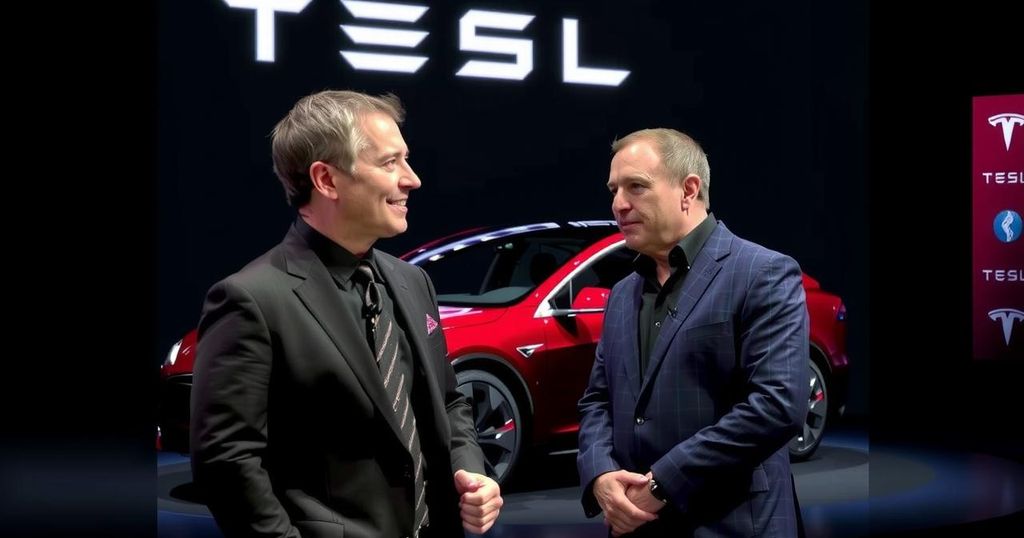Elon Musk and Jeff Bezos Engage in Feud Over Tesla Stock Claims
Elon Musk accused Jeff Bezos of advising friends to sell Tesla shares due to Trump’s electoral prospects. Bezos denied the claim, emphasizing neutrality in political endorsements. Both figures are engaged in a lengthy rivalry, particularly in the electric and space industries, highlighting their contrasting strategies amid the highly charged political landscape surrounding the recent presidential election.
Elon Musk and Jeff Bezos have once again engaged in their ongoing rivalry, following Musk’s assertion that Bezos urged his associates to sell their Tesla shares due to anticipated political outcomes regarding Donald Trump’s presidential election. On X, Musk stated, “Just learned tonight at Mar-a-Lago that Jeff Bezos was telling everyone that @realDonaldTrump would lose for sure, so they should sell all their Tesla and SpaceX stock.” Bezos promptly denied the claim, asserting, “Nope. 100% not true.” Musk’s response, whether sincere or sarcastic, was noted with a laughing emoji, indicating the playful nature of their exchanges.
The context of this dispute transcends personal grievances, linking closely with the economic interests of both men in light of the presidential election. Musk has invested heavily in Trump’s campaign, which has seemingly benefited his business ventures, particularly Tesla, whose stock surged approximately 40% after the election results. Not only does this reflect Musk’s confidence in Trump’s candidacy, but it also suggests a strategic rapport forming between Musk and the President-elect.
Bezos, on the other hand, has opted for a more neutral stance regarding the election, avoiding endorsements and emphasizing the potential biases they may create. His assertive statement, “Presidential endorsements do nothing to tip the scales of an election,” illustrates his perspective that political allegiances should not govern business interests.
The rivalry between Musk and Bezos is highlighted by their competitive stakes in the space industry, evidenced by Amazon’s recent multi-billion dollar investment in Project Kuiper, notably excluding SpaceX. Musk has previously derided Bezos’s ventures, exemplified by comments on Bezos’s involvement in lawsuits against SpaceX, painting their competition in a personal light amidst the broader contextual framework of technological advancement and market dominance.
The ongoing rivalry between Elon Musk and Jeff Bezos, two titans within the tech sector, centers around their respective ventures in electric vehicles and space exploration. Musk’s Tesla has significantly impacted the automotive industry, coinciding with his political endorsements, particularly towards Donald Trump. In contrast, Bezos has maintained a more neutral corporate stance, often avoiding political endorsements despite owning The Washington Post. Their competition extends into the space sector, where each seeks market dominance and has publicly challenged the other’s endeavors, demonstrating how personal conflicts often reflect larger economic motivations.
In summary, the exchange between Elon Musk and Jeff Bezos underscores the competitive nature of their relationship, particularly as it relates to their business interests amidst a significant political backdrop. Musk’s claims and Bezos’s denial highlight the intertwining of personal rivalry and corporate strategy in the high-stakes environment of electric vehicles and space endeavors. As the dynamics of their competition evolve, the implications for both their businesses and the broader market continue to unfold.
Original Source: fortune.com




Post Comment